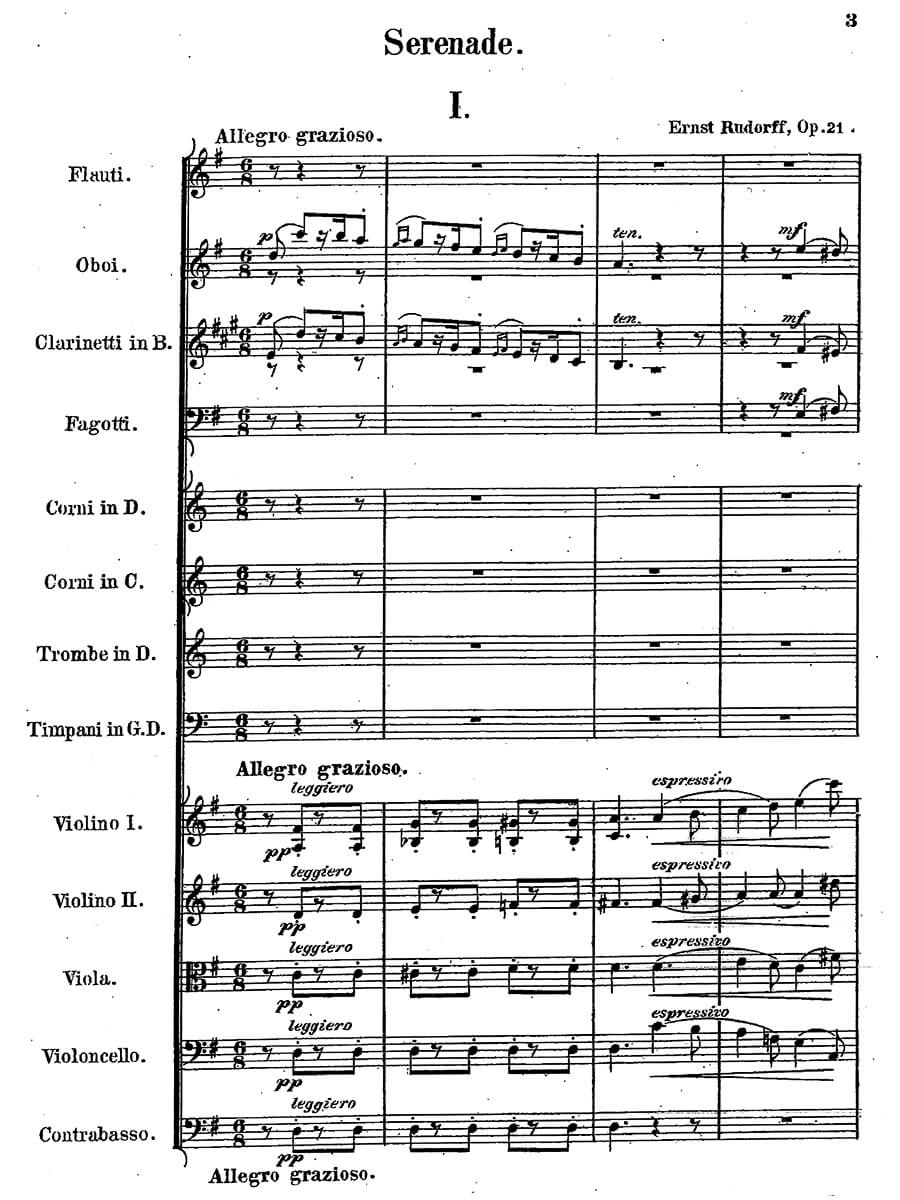Serenade No. 2 in G Major op. 21
Rudorff, Ernst
36,00 €
Preface
Ernst Friedrich Karl Rudorff – Serenade No. 2 in G major for orchestra, op. 21
(18 January 1840, Berlin [Königreich Preußen] – 31 December 1916, Berlin [Deutsches Reich])
Allegro grazioso p. 3 / 4:30
Allegro molto p. 27 / 2:00
Con moto, ma non troppo. p. 52 / 2:30
Largo p. 63 / 5:30
Allegro vivace. p. 74 / 7:00
Orchestration:
2 flutes, 2 oboes, 2 clarinets (B-flat), 2 bassoons, 4 horns (C, D), 2 trumpets (D), timpani, strings
First publications:
Full score – Berlin: Bote & G. Bock, 1884, plate 12849; Piano, four hands, plates 13370.
Dedication:
“Seinem Freunde Philipp Spitta zugeeignet”
Preface
Ernst Rudorff was a German composer, conductor, musicologist, and environmentalist. In addition to his musical successes, he was involved in the foundation of the European environmental protection movement: he has been discussed more in historical literature than in musical literature. Rudorff started to campaign in the late 1870s against the changes that modern agriculture inflicted upon the landscape, after noticing changes to his childhood home due to industrialization. He suggested “decentralized buildings with individual access to green spaces.”
Rudorff’s parents’ home was often visited by German Romantic composers of the day, and the young man studied piano and composition with Woldemar Bargiel (1828–1897, Clara Wieck Schumann’s half-brother), violin with Louis Ries (1830- 1913), and piano with Clara Schumann (1819-1896). Subsequently, Rudorff studied history and theology at the universities of Berlin and Leipzig and music at Leipzig Conservatory (1859-61), where his teachers included Ignaz Moscheles (piano) and Julius Rietz (composition), and Carl Reinecke (composition, privately for two years). …
read more / weiterlesen … > HERE
Score Data
| Score Number | 4900 |
|---|---|
| Edition | Repertoire Explorer |
| Genre | Orchestra |
| Pages | 154 |
| Size | 210 x 297 mm |
| Printing | Reprint |
